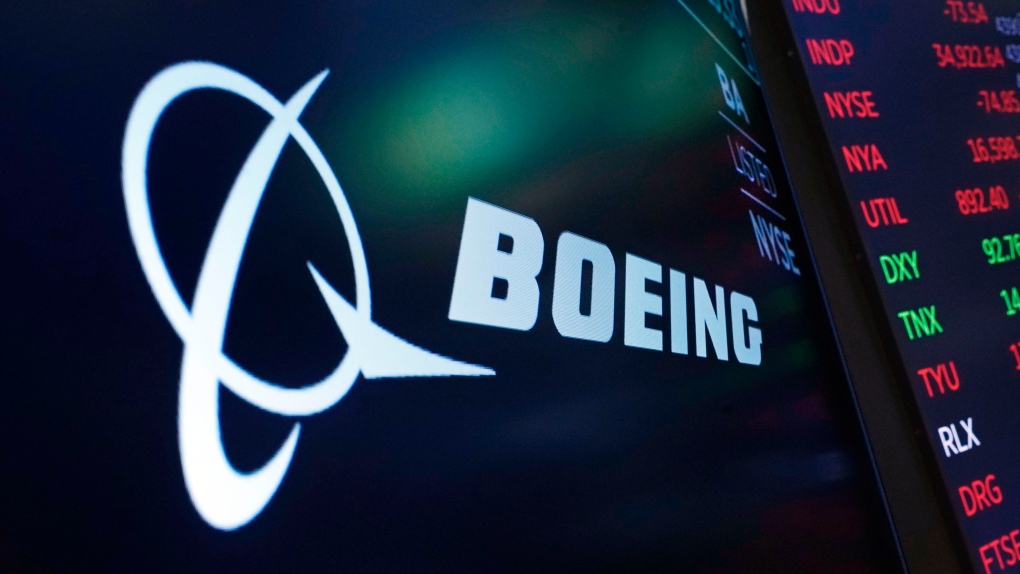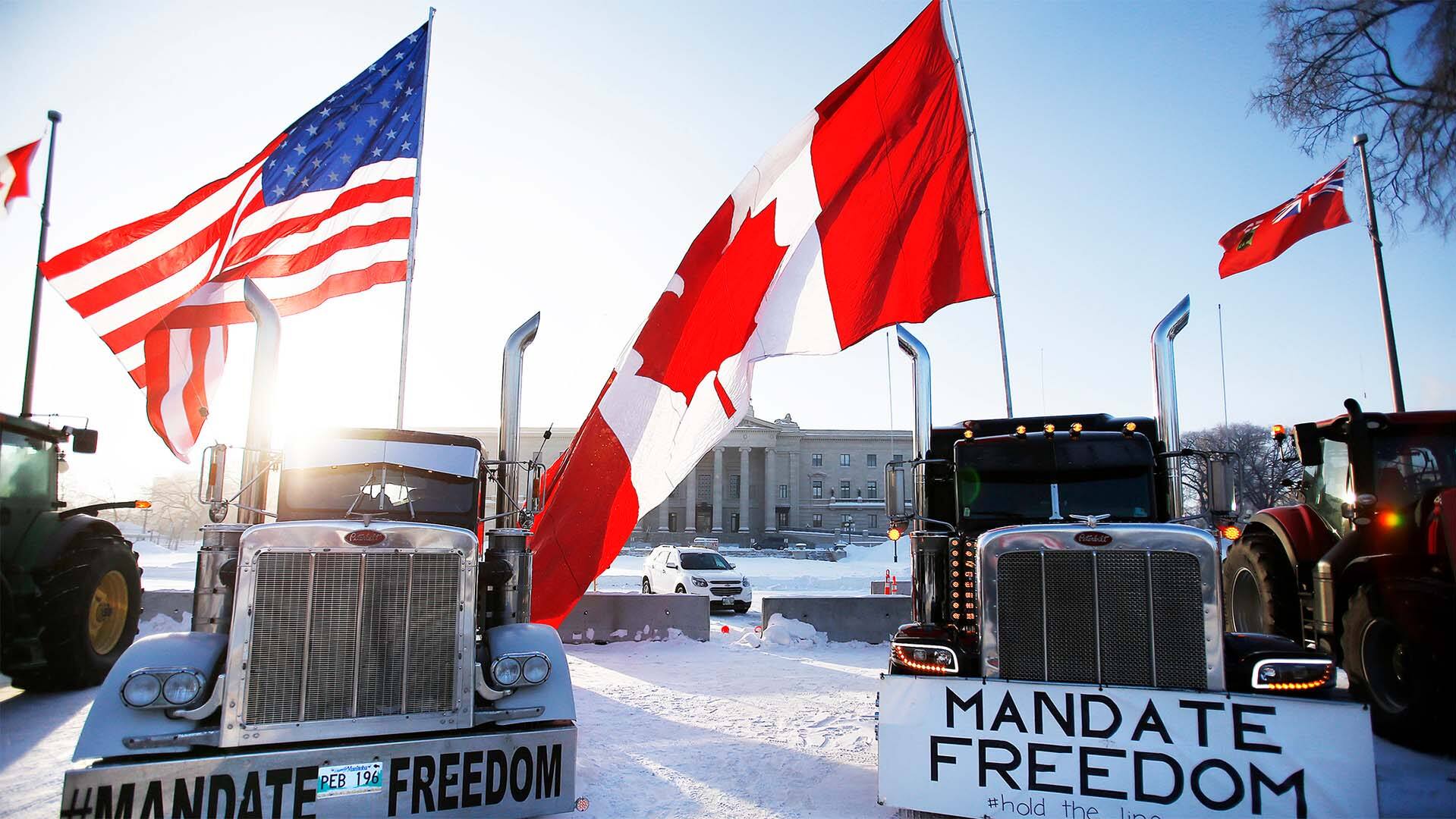
- Is the current definition of fully vaccinated useful for vaccine passports?
- Noise no more? Injunction granted concerning truck honking in Ottawa protest.
- World COVID-19 roundup: Virus developments in Australia, Iran, Vietnam and the United States.
- Explore: Long-term care visitor restrictions begin to ease in Ontario…. WestJet cuts 20 per cent of flights in March, calls for reopening timeline…. Inconsistent approach to high school exams across Canada, education critics says.
Should vaccine passports move to requiring 3 doses?
Governments need to decide now whether they’ll switch to requiring three doses for a valid proof of vaccination against COVID-19 instead of the current two, according to an Ontario medical expert.
“If we would want to change our definitions for a vaccine certificate from two to three doses, it would need to be done very swiftly,” said Dr. Peter Juni, science adviser of the Ontario COVID-19 science advisory table. “It wouldn’t make sense if we start to implement something like that only [in the] second half of March. That’s too late.”
Recent data suggests two doses, while still helping to prevent severe illness, are less effective at preventing transmission of Omicron, making the current system ineffective against reducing spread, according to Juni.
That is borne out by Health Canada data. Between reports on Jan. 5 and Jan. 15 of deaths where vaccination status was reported, the percentage of deaths of those who were fully vaccinated (considered two doses) increased from 10. 2 per cent to 16.8 per cent as Omicron spread. With respect to hospitalizations of those considered fully vaccinated in that span, it climbed from eight per cent to 17 per cent.
As Canada begins moving away from COVID-19 restrictions, Dr. Zain Chagla, an associate professor of medicine at McMaster University in Hamilton, said requiring three doses for vaccine passports is the wrong move at this stage of the pandemic.
Not only has the rollout of third doses been “inequitable,” but the number of Canadians who have been infected with Omicron is high and contributes to significant natural immunity, said Chagla, an infectious disease physician.
In Ontario alone, since Dec. 1, it’s estimated at least 1.5 million people — both vaccinated and unvaccinated — were infected with Omicron.
Given how the more contagious Omicron variant has changed the pandemic’s trajectory, Dr. Sumon Chakrabarti said, he wants passports — and all restrictions — gone sooner rather than later. Some provinces have hinted are they planning to do just that.
“I think that the vaccine passport has run its course at this point in time. I understand the initial justification for it, but I think that with the evidence on the ground, that we can’t really justify it any longer,” said Chakrabarti.
He said restrictive measures like lockdowns and proof of vaccination requirements have an adverse effect on the most marginalized in Canada — those who work in factories and other essential businesses — while protecting office workers he refers to as the “Zoom class.”
With fewer restrictions, both Chagla and Chakrabarti said, participating in society will require more personal risk assessment.
Chagla said those who are vulnerable should still consider a vaccine booster.
“Unfortunately, people have to recognize there is going to be a risk in high-risk environments,” he said. “And unfortunately, vaccine passports may reduce that risk slightly, but not by a significant degree.”
The questions for Western governments become complex as the SARS-COV-2 offers no certainty as to its future path. Dr. Ali Ellebedy, an immunologist at the Washington University School of Medicine in St. Louis, told PBS recently that using the description of fully vaccinated should more variants develop risks becoming “a public health miscommunication.”
“If we call [patients] fully vaccinated and we get pi or tau or a virus strain after that, it could be completely different.”
From CBC News
Conservatives in the U.S., including right-wing media and high-profile Republicans, are vocalizing their support for the Canadian convoy and donating money. They’re not pleased that GoFundMe has cut off the convoy’s fundraising efforts. 2:18
Court grants 10-day injunction to silence honking in downtown Ottawa
An Ottawa judge has granted an interim injunction seeking to silence the honking horns that have plagued residents in downtown Ottawa for the past 11 days.
“Tooting a horn is not an expression of any great thought I’m aware of,” said Justice Hugh McLean during a hearing in Ottawa Monday, granting an injunction for a 10-day period.
The request for an injunction comes out of a proposed class-action lawsuit filed with the Ontario Superior Court of Justice on Friday by lawyer Paul Champ on behalf of his client, Zexi Li.
It seeks an injunction prohibiting the defendants and any other participant in the Freedom Convoy protest from using vehicle horns in the vicinity of downtown.
It was not clear at time of this writing how the injunction would be enforced.
Ottawa Mayor Jim Watson had told CBC Radio’s Ottawa Morning earlier in the day that the city was asking provincial permission to increase fines for noise, idling and blocking roads.
Ottawa police Chief Peter Sloly told reporters that about 20 arrests were made over the weekend and about 500 tickets issued to vehicle owners. Sloly said police are making incremental progress toward ending the demonstration, and that the weekend’s demonstration in terms of the number of trucks and protesters was about one-third of the size of the previous weekend.
Despite that, Sloly said more help would “turn up the heat” on protesters. To that end, he told a city council meeting on Monday he needs an influx of almost 2,000 police officers.
At the federal level, NDP Leader Jagmeet Singh is calling for an emergency debate in the House of Commons on the anti-vaccine mandate protest in Ottawa. In a letter Monday to Speaker Anthony Rota, Singh said he’ll ask for a debate on how to handle the occupation in Ottawa and other protests that have popped up around the country in support of ending all vaccine mandates.
Singh also called on Prime Minister Justin Trudeau to “show leadership and work on a plan to end convoy blockades, save our health-care system on the brink and get Canadians through to the end of this pandemic.”
Several Liberal government ministers spoke to reporters at a news conference Monday on the fluid situation.
Federal Emergency Preparedness Minister Bill Blair said the government shares the frustration of city residents “that the actions of these protesters continue to inflict such disruption in your neighbourhoods.”
But, Blair said, while the RCMP federally is playing a co-ordinating role and responding to local requests, that in a healthy democracy “it’s not the goal of any government to direct law enforcement operations” in such a scenario.
Blair said he was prepared to convene a meeting with local and provincial authorities to further improve “lines of communication.”
World COVID roundup: Longstanding flight, in-person schooling edicts set to expire
Australia will open its borders to all vaccinated tourists and business travellers from Feb. 21 in a further relaxation of pandemic restrictions announced Monday. Prime Minister Scott Morrison said his senior ministers agreed on Monday that the border would reopen to all vaccinated visas holders from Feb. 21. Morrison said visitors must have proof of vaccination.
Australia imposed some of the world’s toughest travel restrictions on its citizens and permanent residents in March 2020 to prevent them from bringing COVID-19 home.
When the border restrictions were relaxed in November in response to an increasing vaccination rate among the Australian population, international students and skilled migrants were prioritized over tourists.
“It’s been a long, hard and desperate road for every tourism business across the country and we have lost many along the way, but this news will give those who have survived a clear target to work towards and a start point for the rebuilding of the industry,” said Peter Shelley, managing director of the Australian Tourism Export Council.
In Vietnam, more than 17 million students were due to return to school on Monday for the first time in about a year, the Health Ministry said, as authorities announced plans to start vaccinating children from as young as five against COVID-19.
The Southeast Asian country lifted many of its coronavirus curbs in October, but almost all students had been confined to taking online classes since early 2021. Schools in the capital Hanoi weren’t starting in-person again until Tuesday, with others across country expected to reopen by the middle of the month.
Vietnam managed to contain the coronavirus for most of 2020 before the Delta variant drove up infections last year. More than 75 per cent of Vietnam’s 98 million people have received at least two vaccine shots, with more than 38,300 deaths suffered in the country during the pandemic.
The government hopes to boost those numbers, announcing Sunday it would buy 21.9 million doses of the Pfizer-BioNTech vaccine for children aged between five and 12.
In Iran, 104 new deaths from COVID-19 were registered over a 24-hour period as the aggressive Omicron variant spreads in the country, state TV reported on Monday.
With 132,934 total deaths by Iran’s official count, the country has the highest national toll in the Middle East. Iran says it has vaccinated 80 per cent of its population above age 18 with two vaccine shots, and 27 per cent have received three shots.
Authorities say the aggressive Omicron variant is now dominant in the country and have urged hospitals to prepare for a new wave of hospitalizations.
“Unfortunately, the sixth wave has begun and we are in the middle of the wave,” said Health Minister Bahram Einollahi. “We think that we will receive the peak of the wave in two to three weeks,” he said. “We ask people to follow protocols.”
In the United States, the governors of New Jersey and Delaware on Monday said their states would lift school mask mandates in the coming weeks.
The change signals a desire by at least some Democratic state governors, including New Jersey’s Phil Murphy and Delaware’s John Carney, to take their states off emergency footing and shift toward policies that treat the virus as part of normal life. The New Jersey mandate will no longer be in effect on March 7, and Delaware is set to scrap its mask mandate for indoor public settings beginning March 31.
By no longer requiring students, teachers and administrators to wear masks in schools, the governors are also seeking to blunt one of the most divisive issues of the pandemic. Republican leaders in some states, including Florida and Texas, have banned mask mandates in schools, while Democrats have generally encouraged the policy to help stall new infection.
As masking policies shift, many U.S. school districts have returned to in-person learning in recent weeks, according to Burbio.com, a site that collects school calendar data. An average of 180 schools were not offering in-person instruction last week countrywide, down from some 6,000 on Jan. 14.
COVID-19 vaccine booster dose percentage per 100 people
Note: The percentage expressed is of the country’s total population, as of Feb. 4. Canada’s percentage in terms of the eligible population (those 18 and over) was 49.9% as of Jan. 30, per Public Health Agency of Canada data.

Find out more about COVID-19
For full coverage of how your province or territory is responding to COVID-19, visit your local CBC News site.
To get this newsletter daily as an email, subscribe here.
See the answers to COVID-19 questions asked by CBC viewers and readers.
Still looking for more information on the pandemic? Reach out to us at [email protected] if you have any questions.





More Stories
Trump allies Meadows, Giuliani among 18 indicted in Arizona election interference case | CBC News
Why did the U.S. TikTok ban bill get packaged with foreign aid?
Edmonton police seeing no further extortion of South Asian businesses as investigation continues | CBC News